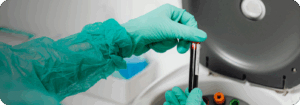The interplay between immunology and fertility is an intriguing area of study that merges the intricacies of the immune system with reproductive health. Understanding how the immune system can influence fertility is crucial, as it sheds light on a range of reproductive challenges faced by individuals. Reproductive immunology, an emerging branch of medicine, primarily investigates how immune system disorders may contribute to infertility or complicate pregnancies.
Historically, the immune system has been recognised for its role in safeguarding the body against pathogens. However, its influence extends beyond protection, particularly in the context of reproductive medicine where it is vital for a successful pregnancy. Faulty immune responses can lead to reproductive disorders, highlighting the need for research to identify underlying causes and develop effective treatments. Advances in this field are increasingly essential, not just for understanding the mechanics of fertility, but for offering hope to those facing fertility issues through improved diagnostic methods and innovative therapeutic approaches.
Key Takeaways
- The immune system’s function extends to reproductive health, affecting fertility and pregnancy outcomes.
- Immune-related fertility issues necessitate advancements in both diagnosis and treatment within reproductive medicine.
- Ongoing research in reproductive immunology is vital for devising strategies to manage and treat immune-mediated infertility.
Immune System Basics and Reproduction
The intersection of immunology and reproduction is a critical area that affects fertility and pregnancy outcomes. Understanding the fundamentals of the immune system and its role in reproductive processes is essential.
Fundamentals of the Immune System
The immune system comprises an intricate network of cells, tissues, and organs that work in unison to protect the body from pathogens. Key immune cells include:
- T cells: These play a pivotal role in cell-mediated immunity and can be further categorised into helper T cells, cytotoxic T cells, and regulatory T cells.
- B cells: Responsible for humoral immunity through the production of antibodies.
- Dendritic cells: They act as messengers between the innate and the adaptive immune systems.
- Macrophages: Engage in phagocytosis, devouring pathogens and presenting their antigens.
- Natural Killer (NK) cells: These cells target and destroy compromised host cells, such as tumour cells or virus-infected cells.
Reproductive Immunology Overview
Reproductive immunology examines the interaction between the immune system and reproductive organs. Key points include:
- The female genital tract houses a unique immune environment to protect against pathogens while also accommodating sperm and, ultimately, an embryo.
- During pregnancy, the maternal immune system exhibits remarkable adaptation to tolerate foreign paternal antigens in the developing fetus.
- Immunity within the context of reproduction encompasses both innate and adaptive responses, where complex immunological shifts are eminent for successful conception and pregnancy.
- The interplay of immune cells like T cells, B cells, and macrophages is critical in maintaining a balance between immunological tolerance for the fetus and protection against infection.
Immunological Factors Affecting Fertility
The interplay between the immune system and fertility is complex, revolving primarily around the concepts of immune tolerance and the repercussions of inflammation on the reproductive process.
Immune Tolerance and Fertility
The immune system’s ability to distinguish between foreign cells and the body’s own cells is critical for reproductive success. Immune tolerance in fertility involves the acceptance of a genetically different embryo by the mother’s immune system. Specialised T cells such as regulatory T cells (Tregs) play a pivotal role in this process by suppressing immune responses against the embryo, thus facilitating a healthy pregnancy. Impairment in these mechanisms can lead to infertility or recurrent reproductive failure.
Inflammation and Reproductive Failure
Chronic inflammation is often linked to reproductive failure. Immune cells, including T cells and natural killer (NK) cells, have been associated with various infertility issues due to their role in creating a hostile inflammatory environment in the reproductive tract. Elevated levels of Th2 type responses and dysregulated immunomodulation can disrupt the equilibrium required for implantation and pregnancy maintenance, leading to conditions such as recurrent miscarriage or implantation failure. Addressing underlying inflammatory diseases may help mitigate their adverse effects on fertility.
The Immune System’s Role in Pregnancy
The immune system plays a crucial role in maintaining a healthy pregnancy, with specific immune cells facilitating the complex interaction between mother and foetus at the maternal-fetal interface, as well as mediating responses that can lead to complications if dysregulated.
Immune Cells at the Maternal-Fetal Interface
At the core of a successful pregnancy is the maternal-fetal interface, where an intricate network of immune cells operates to foster a supportive environment for the developing foetus. Uterine natural killer (uNK) cells and decidual macrophages are the predominant immune cells in this critical zone. uNK cells assist in remodelling the spiral arteries, which is essential for proper blood flow to the growing foetus. Decidual macrophages support tissue remodelling and maintain immune tolerance, preventing the maternal immune system from rejecting the foetus identified as foreign tissue. Alongside, trophoblasts, originating from the placenta, interact with these immune cells to further enforce this unique immune environment.
Immune Responses and Pregnancy Complications
Alterations in the immune response can lead to serious pregnancy complications, such as spontaneous or recurrent spontaneous abortion, preterm birth, and various other forms of pregnancy complications. A critical balance must be struck: insufficient immune tolerance may lead to rejection of the foetus, manifesting as miscarriage or repeated pregnancy loss, while an overactive immune response can trigger complications such as pre-eclampsia and foetal growth restriction. Progesterone is believed to play a moderating role, promoting an environment conducive to foetal survival by influencing immune responses. Understanding these delicate immunological mechanisms is essential for developing targeted treatments to prevent or manage complications.
Diagnosis and Management of Reproductive Immunological Issues
Recognising and addressing immunological issues is crucial for effective management of infertility. Disruptions within the immune system can significantly impact fertility and pregnancy outcomes.
Assessment of Immune-Related Infertility
Professionals may begin with a thorough medical history and physical examination to look for signs of immunological disorders affecting fertility. Tests that measure levels of antiphospholipid antibodies, and anti-thyroid antibodies, or assess natural killer cell activity can help identify immune dysfunctions. For unexplained infertility, evaluation of immune interactions at the level of the trophoblast cells—an essential part of implantation and pregnancy—may be undertaken. Additionally, regulatory T cells (Tregs), vital in maintaining immune tolerance during pregnancy, are also assessed.
Treatment Approaches for Immunological Infertility
Once a diagnosis is established, treatment strategies are personalised. They may include:
- Immunomodulation therapies: Designed to adjust the immune system’s response and promote a favourable environment for implantation and pregnancy.
- In vitro fertilisation (IVF/ET): Often coupled with immunomodulatory treatments to increase the chance of successful pregnancy, particularly in cases where immune system disorders affect the sperm or egg interaction or embryo implantation.
- Corticosteroids: These can be used for reducing inflammation and immune response in certain conditions like antiphospholipid syndrome.
- Intravenous immunoglobulin (IVIG): Used in some clinical scenarios to modulate immune responses in women with recurrent unexplained pregnancy losses.
Treatments aim to facilitate a balanced immune environment that supports the implantation and growth of the trophoblast and reduces the chances of infertility related to immunological issues.
Advancements in Immunological Research and Reproductive Health
Recent immunological research has significantly contributed to understanding the complexities of reproductive health. Investigation into the immune system’s role during pregnancy has shed light on how disruptions can impact fertility.
Adaptive immunity, one of the defence mechanisms, is notably more tolerant during pregnancy to prevent the rejection of the foetus. This tolerance, however, if dysregulated, may lead to fertility issues. Scientists have made progress in identifying specific immune cells and antibodies that are key in maintaining this delicate balance. For example, regulatory T cells have been shown to play a critical role in fostering a pregnancy-friendly environment.
Reproductive medicine has benefitted from these insights by developing targeted therapies to correct immune system disorders. Such treatments contribute to improved pregnancy outcomes for those with immune-related fertility problems.
| Immune Component | Role in Fertility | Potential Treatments |
|---|---|---|
| Regulatory T cells | Maintenance of foetal tolerance | Immunomodulatory therapies |
| Natural Killer (NK) cells | Implantation and placenta formation | Intravenous immunoglobulin (IVIg) |
| Autoantibodies | Biomarkers for autoimmune conditions | Immunosuppressive drugs |
Furthermore, collaborations between immunologists and fertility specialists have led to the development of protocols to screen for and treat immune disorders that could affect conception. This multidisciplinary approach has enhanced the success rates in assisted reproductive technologies (ART).
In summary, advancements in immunological research are crucial for optimising reproductive health. Continued investigations promise to uncover new pathways for innovative treatments, ultimately aiding individuals facing fertility challenges to realise their reproductive goals.
Frequently Asked Questions
In this section, various aspects of how immunological disorders intersect with fertility are explored, along with the advancements in treatments that directly target these issues.
How can immunological disorders impact one’s ability to conceive?
Immunological disorders can lead to fertility complications by causing inflammation, abnormal immune responses, and the production of antibodies that may attack reproductive tissues or interfere with hormone functions essential for conception.
What are the current immunological treatments available for addressing infertility?
Current treatments for infertility related to immunology include immunosuppressive therapies to reduce inflammatory responses, intravenous immunoglobulin (IVIG) therapy, and the use of corticosteroids or other medications that modulate the immune system.
In what ways does autoimmune disease influence fertility outcomes?
Autoimmune diseases can impair fertility by causing tissue damage or hormonal imbalances. Conditions such as thyroid disorders, lupus, and antiphospholipid syndrome are known to affect reproductive health and can lead to issues like miscarriage or reduced egg quality.
Can interventions in reproductive immunology improve IVF success rates?
Interventions aimed at balancing the immune system, such as the use of immune modulating drugs or steroids, may enhance in vitro fertilisation (IVF) outcomes by improving implantation rates and reducing the likelihood of rejection of the embryo.
Why is a thorough understanding of reproductive immunology critical in fertility treatments?
A deep understanding of reproductive immunology is crucial as it aids clinicians in identifying immune-related fertility issues and tailoring treatment plans to address the underlying immunological disruptions, thus improving the chances of successful conception.
What qualifications should one look for when seeking a reproductive immunologist?
When seeking a reproductive immunologist, look for accredited professionals with specialised training in both immunology and reproductive health. Relevant qualifications may include certification by recognised medical boards and experience in treating fertility disorders with an immunological basis.





